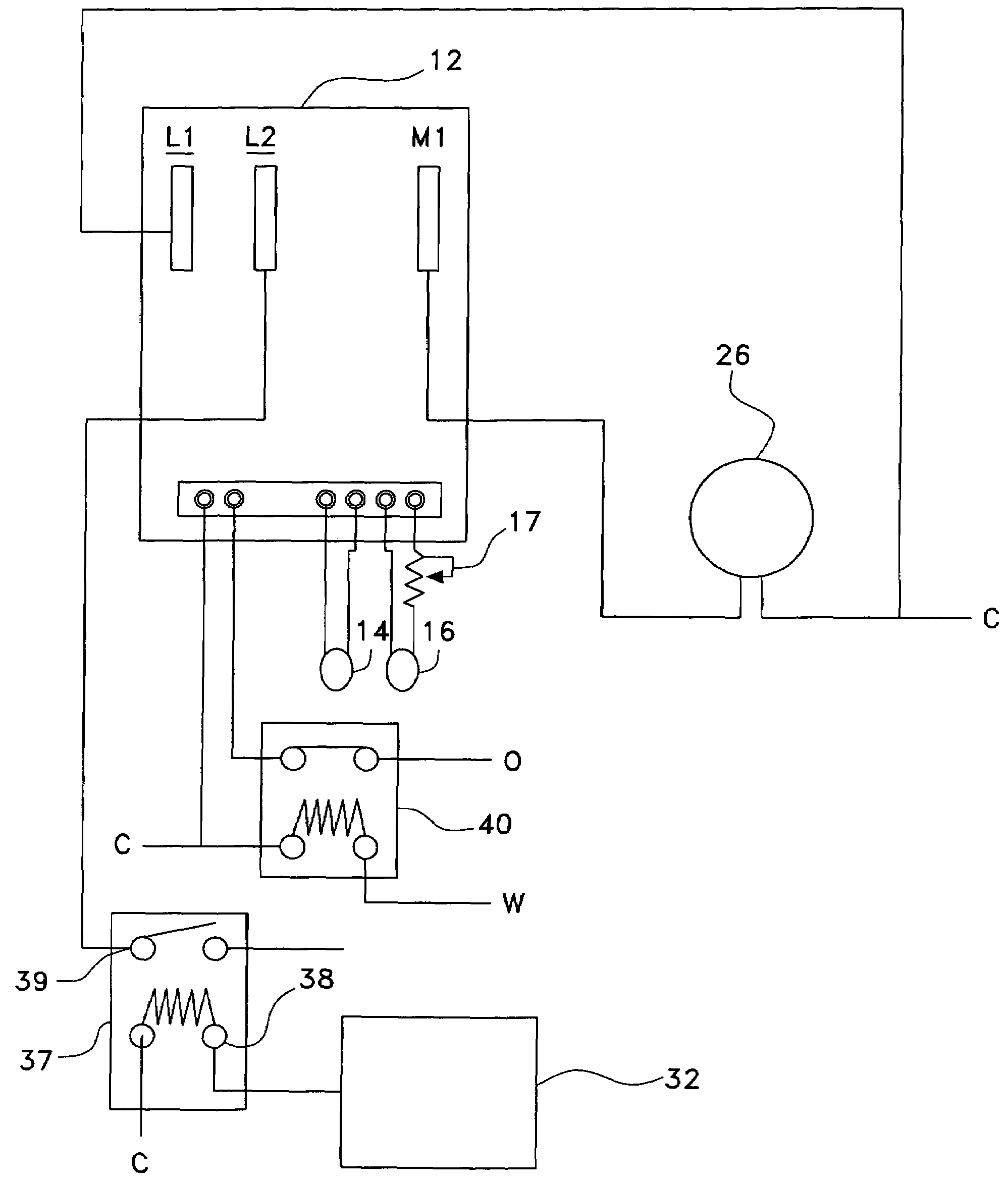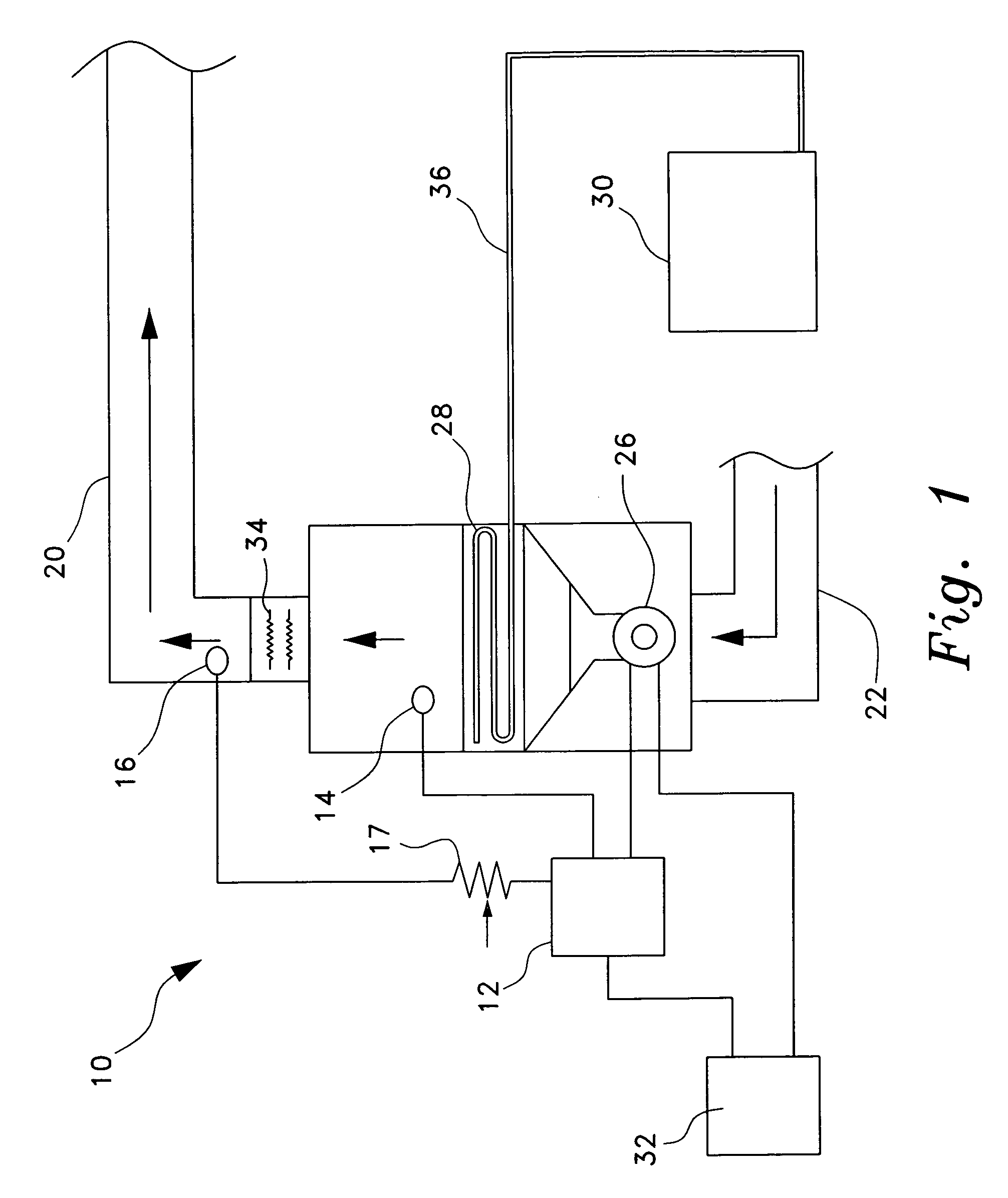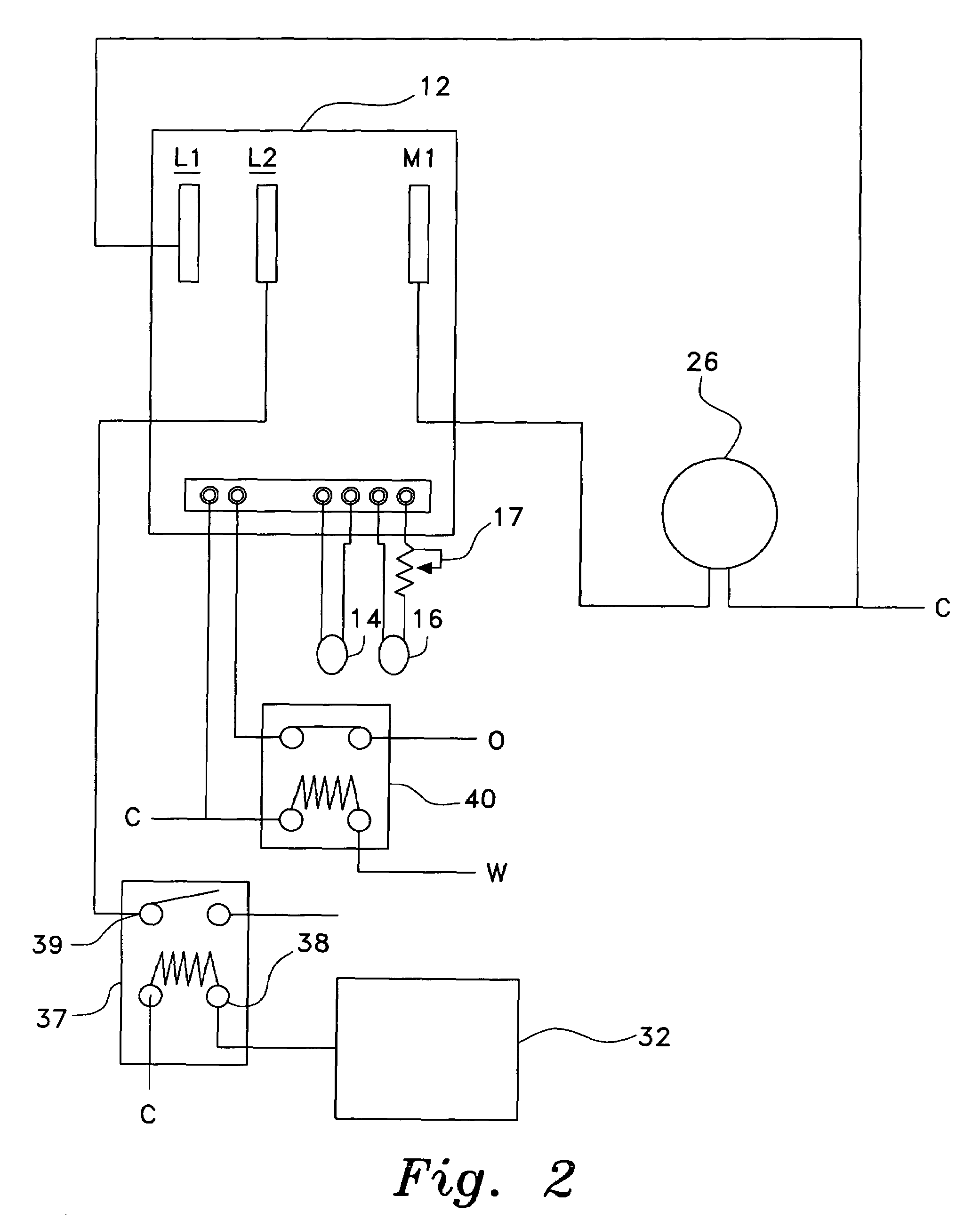System and method of increasing efficiency of heat pumps
a heat pump and efficiency technology, applied in the field of heating systems, can solve the problems of increasing the difficulty of the heat pump to extract heat from colder outdoor air, reducing efficiency, and preventing the heat pump's operation, and achieve the effect of increasing heating efficiency
- Summary
- Abstract
- Description
- Claims
- Application Information
AI Technical Summary
Benefits of technology
Problems solved by technology
Method used
Image
Examples
Embodiment Construction
[0028]The present invention is a system and method for increasing efficiency in heat pump systems. Referring to FIGS. 1-3, a heat pump system 10 incorporating a system for increasing efficiency in heat pump systems according to the present invention is shown. The heat pump system 10 has, in a generally known configuration, an outdoor condenser unit 30 connected by refrigerant lines 36 to an indoor heat-exchanging coil 28. The indoor heat-exchanging coil 28 is disposed, along with a blower fan 24 and blower motor 26, within ductwork comprising a return duct 22 and a supply duct 20. Resistive heating elements 34 are disposed downstream of the indoor heat-exchanging coil 28. An indoor thermostat 32 controls the operation of the blower motor 26. Typically, the thermostat 32 operates a motor relay 37 to switch the fan motor 26. As shown in FIG. 2, the thermostat 32 is in communication with a switching input 38 of the motor relay 37. On receiving a signal from the thermostat 32, a switche...
PUM
 Login to View More
Login to View More Abstract
Description
Claims
Application Information
 Login to View More
Login to View More - R&D
- Intellectual Property
- Life Sciences
- Materials
- Tech Scout
- Unparalleled Data Quality
- Higher Quality Content
- 60% Fewer Hallucinations
Browse by: Latest US Patents, China's latest patents, Technical Efficacy Thesaurus, Application Domain, Technology Topic, Popular Technical Reports.
© 2025 PatSnap. All rights reserved.Legal|Privacy policy|Modern Slavery Act Transparency Statement|Sitemap|About US| Contact US: help@patsnap.com



